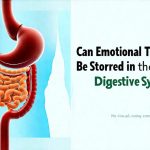The connection between our emotional state and physical well-being is profound, yet often underestimated. For centuries, philosophical traditions and increasingly, modern science, have recognized that mind and body are not separate entities but interconnected systems constantly influencing one another. While we readily acknowledge how stress can lead to headaches or anxiety manifests as rapid heartbeat, the subtler ways in which emotional suppression impacts physical health – particularly within the abdominal region – frequently go unrecognized. Many individuals experiencing chronic digestive issues may unknowingly be grappling with unresolved emotional burdens that are manifesting somatically, meaning as physical symptoms. This article explores the complex interplay between emotional life and abdominal discomfort, aiming to shed light on how suppressing emotions can contribute to a variety of gastrointestinal experiences.
The gut is often referred to as our “second brain” due to its intricate neural network – the enteric nervous system – which communicates directly with the central nervous system. This bidirectional communication pathway, known as the gut-brain axis, explains why emotional states significantly impact digestive function and vice versa. When we experience emotions, whether positive or negative, neurochemicals are released that influence gut motility, inflammation levels, and even the composition of our gut microbiome. Chronically suppressing emotions disrupts this delicate balance, creating a state of physiological tension that can manifest as discomfort, pain, or functional gastrointestinal disorders. Understanding this connection is crucial for holistic health approaches that address not just the physical symptoms but also the underlying emotional components. Did you know how reflux can affect your well being?
The Gut-Brain Axis and Emotional Processing
The gut-brain axis isn’t simply a one-way street; it’s a dynamic, complex communication system. Neurotransmitters like serotonin (largely produced in the gut), dopamine, and GABA play crucial roles in both mental health and digestive function. Stress hormones, such as cortisol, released during times of emotional duress, directly impact gut permeability – often referred to as “leaky gut” – increasing inflammation and potentially triggering immune responses. This means that consistently suppressing emotions can lead to chronic low-grade inflammation throughout the body, with the gut being a prime target.
Furthermore, the vagus nerve serves as a major conduit between the brain and the gut, relaying information in both directions. Emotional suppression often leads to reduced vagal tone – a measure of the nervous system’s ability to regulate heart rate variability and promote relaxation. Lower vagal tone is associated with increased inflammation, impaired digestion, and a diminished capacity to cope with stress. In essence, habitually bottling up emotions can weaken this vital connection, contributing to both emotional and physical unwellness. You might ask yourself can you develop GERD as an adult?
The impact isn’t limited to acute stress responses either. Prolonged emotional suppression requires significant energy expenditure from the body as it attempts to maintain homeostasis while simultaneously suppressing natural expressive outlets. This constant internal effort depletes resources needed for optimal digestion, immune function, and overall health, ultimately increasing vulnerability to abdominal discomfort and related symptoms. Consider how frequently we’re told to “swallow our feelings” – this very act physically mirrors a restriction within the digestive system. It’s also possible that GERD can be misdiagnosed as something else entirely.
Somatic Symptom Expression & Abdominal Manifestations
Somatic symptom expression refers to the way psychological distress manifests as physical symptoms. In other words, it’s the body’s language for communicating unresolved emotional experiences. The abdomen is a particularly common site for somatic expression due to its inherent vulnerability and connection to core emotions related to safety, nourishment, and vulnerability.
- Bloating and gas can be experienced not simply as digestive issues but as physical representations of feeling “stuffed” with unexpressed emotions or overwhelmed by responsibility.
- Abdominal pain, particularly cramping, may arise from suppressed anger, fear, or grief. The tightening sensation in the gut mirrors the internal constriction associated with holding back these powerful feelings.
- Changes in bowel habits (constipation or diarrhea) can reflect emotional states like anxiety (diarrhea) or a desire to “hold onto” control (constipation).
- Irritable Bowel Syndrome (IBS), while complex, has strong links to emotional regulation and stress management. Many individuals with IBS report symptom flares during times of high emotional distress.
It’s important to note that somatic symptoms aren’t necessarily signs of weakness or fabrication; they are legitimate physical experiences rooted in the body’s response to emotional burdens. Dismissing them as “all in your head” is not only unhelpful but can further exacerbate the problem by invalidating the individual’s experience and hindering their ability to address the underlying emotional issues. A holistic approach may include gut healing for improved resilience.
The Role of Trauma & Early Emotional Experiences
Early childhood experiences, particularly those involving trauma or adverse emotional environments, significantly shape our capacity for emotional regulation and expression. Children who are discouraged from expressing emotions, punished for showing vulnerability, or exposed to chronic stress may develop patterns of emotional suppression as a coping mechanism. These patterns often become deeply ingrained over time, leading to difficulties identifying and processing emotions in adulthood.
Trauma can fundamentally alter the nervous system’s response to perceived threats, creating a state of hypervigilance and heightened reactivity. This means that even seemingly minor stressors can trigger intense emotional responses which are then quickly suppressed, leading to chronic tension and somatic symptoms. Furthermore, individuals who have experienced trauma may struggle with feelings of shame or guilt associated with their emotions, making it even more difficult to express them openly.
The abdominal region often becomes a repository for these unresolved traumas. The gut is closely linked to feelings of safety and security, and experiences of abuse or neglect can create a deep-seated sense of vulnerability that manifests as chronic digestive issues. Addressing past trauma through therapy – such as somatic experiencing or EMDR – can be crucial for releasing emotional burdens and restoring healthy gut function. It’s important to recognize gut issues can start after emotional trauma.
Cultivating Emotional Awareness & Expression
Breaking the cycle of emotional suppression requires cultivating self-awareness, developing healthier coping mechanisms, and learning to express emotions in safe and constructive ways. This is not about unleashing uncontrolled outbursts but rather about acknowledging, validating, and processing emotions without judgment. Here are a few steps individuals can take:
- Mindfulness Practices: Regular mindfulness meditation or body scan exercises can help increase awareness of internal sensations, including emotional states and physical tension.
- Journaling: Writing down thoughts and feelings can provide an outlet for expression and help identify patterns of emotional suppression.
- Creative Expression: Engaging in activities like painting, music, or dance can offer alternative ways to process emotions that may be difficult to articulate verbally.
- Therapy: Working with a qualified therapist – particularly one specializing in trauma-informed care or somatic experiencing – can provide support and guidance in processing unresolved emotional issues.
- Gentle Movement: Practices like yoga or tai chi promote relaxation, reduce stress, and enhance body awareness.
It is essential to remember that addressing emotional suppression is not a quick fix. It requires ongoing effort, self-compassion, and a willingness to explore difficult emotions. However, the benefits – both physical and emotional – can be profound, leading to greater well-being, resilience, and a more harmonious relationship between mind and body. Emotional stress could actually be a root cause of these issues. You may also want to learn more about an abdominal x-ray.


















